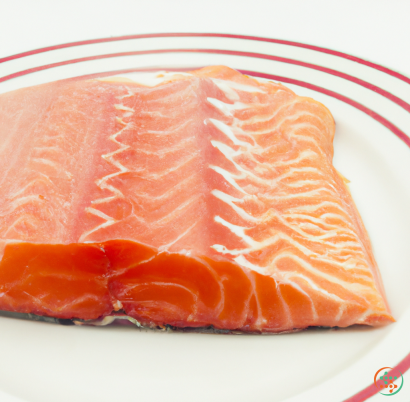Shark Meat
and why it is important
When it comes to seafood, shark meat is one of the most controversial dishes. It has been described as one of the most delicious, nutrient-dense seafood dishes out there, and yet it is also one of the most misunderstood and underappreciated seafood delicacies. In this article, we'll be taking a closer look at what shark meat is, what its nutritional value is, and why it is important for people to embrace this unique seafood option.
Shark meat is the flesh of any marine animal within the family of Chondrichthyes, which are characterized by cartilaginous skeletons and a skeletal structure that features dermal denticles (or "skin scales"). Sharks are a top predator in their respective ecosystems and have adapted over millions of years to live in a wide variety of habitats throughout the oceans of the world.
Shark meat is usually found dried or in canned form. Because of its high fat and oil content, shark meat has a unique taste and texture. Depending on the type of shark, the flavor of the flesh can range from sweet and mild to strong and gamey.
Nutritionally speaking, shark meat is an excellent source of lean protein and is low in calories and saturated fat. Additionally, it provides an array of essential minerals, including calcium, phosphorus, potassium, magnesium and zinc. Shark meat is also a rich source of vitamin A, vitamin D, vitamin B12 and omega-3 fatty acids.
One of the most important reasons to consume shark meat is because it helps to maintain a sustainable seafood market. While shark fishing has been a point of contention for some environmental and animal rights groups, it can actually be beneficial for the environment when done responsibly. Shark fishing is arguably more sustainable than some other types of fishing because sharks, as top predators, play an important role in the delicate balance of the aquatic ecosystem.
Moreover, the international demand for shark meat has grown significantly in recent years, driving prices up and encouraging responsible fishing practices. This is a far cry from traditional methods of shark fishing, where massive numbers of sharks were killed without regard for the impact their loss would have on the fragile aquatic food web. With the rise in shark meat demand, fishers are now able to target specific species of sharks that can then be sustainably harvested.
The health benefits of eating shark meat should also not be overlooked. Despite its higher fat content, shark meat is still a healthier option than other animal meats because of its lower caloric content. Furthermore, it is packed with important vitamins and minerals that can help strengthen your immune system and promote healthy bones, skin and hair. Eating shark meat can also reduce your risk of suffering from a number of chronic diseases, including heart disease, obesity and diabetes.
Finally, shark meat is an extremely affordable form of protein that can be easily prepared and cooked in a variety of ways. It can be grilled, steamed, sautéed, or even prepared as sushi. All of these cooking options make it easy to incorporate into any meal.
In conclusion, shark meat is not only an incredibly delicious seafood option, but it is also a sustainable and nutritious one too. While shark fishing practices may have been historically irresponsible, modern methods of shark fishing promote sustainability and protect the delicate balance of the aquatic ecosystem. Additionally, due to its high content of essential vitamins and minerals, eating shark meat can provide a number of impressive health benefits as well. While shark meat may be a controversial topic among some, it is certainly an important seafood option to embrace and enjoy.
Shark Meat: From Ocean to Kitchen Table
For centuries, shark has been an integral part of the diets of many cultures. Whether served as sashimi or as shark meat, its preparation is a complicated process from the time it is caught in the ocean to when it reaches the diner’s plate. While it may take some time for shark to get from the sea to the dinner table, understanding the process can ensure the health and sustainability of shark populations and the quality of shark meat that reaches the markets.
The Process of Catching Sharks
Sharks are typically caught using a variety of methods, including rod and reel, longline fishing and trawling. These methods vary in their effectiveness, not only in terms of the number of sharks they can catch, but also in terms of the types of sharks they can collect: Certain gears can target specific sharks, and some may target multiple species at once. For example, longlining is effective for targeting larger sharks, while trawling can be used to target a variety of shark species, including smaller ones.
After a shark is caught, it must be immediately put into a live, cool-water holding pens, where it can be monitored until it is ready to be processed. This wait may range from a few hours to several days. It is important to ensure proper ventilations and ample oxygenation of the water during this time-period, as sharks are highly sensitive to critical water parameters.
The Processing of Shark Meat
Once the catch is ready for processing, the shark can be killed quickly and humanely by a combination of a blow to the head, bleeding out of the gills, and/or injection of a regulated solution. This begins the preservation process.
At this point, the shark’s body is opened up, and its organs and blood are removed. This is followed by the removal of the fins and skin. Fins are usually dried and shipped to countries like China, while the skin is sometimes used in leather products or bone-in or boneless shark meat. Depending on the market demands, the carcass can also be processed by baling, grinding or freezing.
If the shark is to be frozen and shipped, it is then pre-cooled in the controlled-temperature facilities, inspected and graded on the basis of its appearance, size, condition and taste. Final packaging will be determined at this stage, and usually involves either vacuum-sealing or modified atmosphere packing, which helps to retain freshness and preserve the nutritional value of the meat.
Life After the Process: From Hook to Plate
Now that the shark skin, fins and meet are prepared, it is time for the shark product to travel from the processing plant to the dinner plate. Depending on the demand, the shark meat can be sold to wholesalers, retailers, restaurateurs, and fishing groups, or even exported to overseas markets.
Wholesalers are those who buy in bulk so the product can be sold to retail stores. They must ensure that the shipping and storage standards are met, and will often produce their own brands of the product in order to increase profitability.
Retail stores such as supermarkets, fish markets and specialty butcher shops, then purchase the product from the wholesalers and make it available to the public. It is important to check with the store’s quality controls and regulations, as they can often change depending on provincial or state regulations.
Restaurants are another major outlet for buying shark meat. As shellfish and other seafood need to be handled in a specific way to preserve quality, it is important to ensure that personnel working in restaurants are properly trained to handle and store the shark meat safely.
Finally, shark meat products may also be purchased directly from fishing groups or exported to overseas markets. If the shark meat is going to be exported, the receiver must ensure that the shark meat is inspected and tested for any substances that may be potentially dangerous.
Conclusion
Sharks have been a part of many cultures’ diets for centuries, and the process of catching, preserving, and delivering them can be a complicated one. For this reason, ensuring that the process is done properly with respect to the sustainability of shark populations and the quality of their meat is essential. By better understanding the process, as well as the regulations and guidelines for handling and storing shark meat, seafood environments around the world can be better protected and maintained for generations to come.
| Vitamin A | 0.054 mg | |
| Vitamin B1 | 0.07 mg | |
| Vitamin B2 | 0.1 mg | |
| Vitamin B3 | 0.00278 grams | |
| Vitamin B5 | 0.62 mg | |
| Vitamin B6 | 0.3 mg | |
| Vitamin B9 | 0.015 mg | |
| Vitamin B12 | 0.00121 mg |
| Calcium | 0.05 grams |
Daily Value 1.3 g
|
| Iron | 0.00111 grams |
Daily Value 0.018 g
|
| Magnesium | 0.043 grams |
Daily Value 0.4 g
|
| Phosphorus | 0.194 grams |
Daily Value 1.25 g
|
| Potassium | 0.155 grams |
Daily Value 4.7 g
|
| Sodium | 0.122 grams |
Daily Value 2.3 g
|
| Zinc | 0.48 mg |
Daily Value 0.011 g
|
| Copper | 0.04 mg |
Daily Value 0.9 mg
|
| Manganese | 0.05 mg |
Daily Value 0.0023 g
|
| Selenium | 0.034 mg |
Daily Value 0.055 mg
|
| Tryptophan | 0.212 grams | |
| Threonine | 0.843 grams | |
| Isoleucine | 0.867 grams | |
| Leucine | 1.515 grams | |
| Lysine | 1.634 grams | |
| Methionine | 0.541 grams | |
| Cystine | 0.212 grams | |
| Phenylalanine | 0.75 grams | |
| Tyrosine | 0.633 grams | |
| Valine | 0.965 grams | |
| Arginine | 1.094 grams | |
| Histidine | 0.538 grams | |
| Alanine | 1.097 grams | |
| Aspartic Acid | 1.85 grams | |
| Glutamic Acid | 2.97 grams | |
| Glycine | 0.872 grams | |
| Proline | 0.744 grams | |
| Serine | 0.789 grams |
| Total Sugars | 0.131141 grams |
per 100g
|
| Myristic acid (14:0) | 0.1 grams |
|
| Palmitic acid (16:0) | 2.01 grams |
|
| Stearic acid (18:0) | 1.09 grams |
|
| Total Saturated fatty acids: | 3.2 g | |
| Erucic acid (22:1) | 0.25 grams |
|
| Oleic acid (18:1) | 5.22 grams |
|
| Palmitoleic acid (16:1) | 0.22 grams |
|
| Gadoleic acid (20:1) | 0.22 grams |
|
| Total Monounsaturated fatty acids: | 5.91 g | |
| Omega-3 Timnodonic acid (20:5) | 0.26 grams |
|
| Omega-3 Clupanodonic acid (22:5) | 0.09 grams |
|
| Linolenic acid (18:3) | 0.19 grams |
|
| Linoleic acid (18:2) | 2.6 grams |
|
| Total Polyunsaturated fatty acids: | 3.14 g | |
| Cholesterol | 0.06 grams |
|
| Total Sterols: | 0.06 g | |







